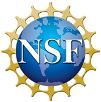Professor Shantenu Jha is the lead PI on a 3 year NSF award for $1.25M on a project titled "The Power of Many: Ensemble Toolkit for Earth Sciences." This is a three way collaborative project between Rutgers, Penn State University and Princeton. In this project, Dr. Jha will work with Michael Mann (https://en.wikipedia.org/wiki/Michael_E._Mann) a distinguished Climate Scientist at Penn State and Guido Cervone to advance high-performance computing based methods for the analysis of CMIP5 data. Dr. Jha will also work with Jeroen Tromp and others at Princeton to help advance computational modelling capabilities of Seismic Inverse Problems and thus seismic hazard assessment. This award is funded as part of the NSF EarthCube Program which is a joint solicitation between Advanced Cyberinfrastructure and Geosciences.
Congratulations Shantenu!
Please see below an abstract for the project:
The Power of Many: Ensemble Toolkit for Earth Sciences
Abstract: The study of hazards and renewable energy are paramount for the development and sustainability of society. Similarly, the emergence of new climatic patterns pose new challenges for future societal planning. Geospatial data are being generated at unprecedented rate exceeding our analysis capabilities and leading towards a data-rich but knowledge-poor environment. The use of advanced computing tools and techniques are playing an increasingly important role in contributing to solutions to problems of societal importance. This project will create specialized computational tools that will enhance the ability of scientists to effectively and efficiently study natural hazards and renewable energy. The use of these tools will support novel methods and the use of powerful computing resources in ways that are not currently possible.
Many scientific applications in the field of Earth Sciences are increasingly reliant on “ensemble-based” methods to make scientific progress. This is true for applications that are both net producers of data, as well as aggregate consumers of data. In response to the growing importance and pervasiveness of ensemble-based applications and analysis, and to address the challenges of scale, simplicity and flexibility, we propose the Ensemble Toolkit for Earth Sciences. The Ensemble Toolkit will provide an important addition to the set of capabilities and tools that will enable the Earth Science community to use high-performance computing resources more efficiently, effectively and in an extensible fashion.
This project represents the co-design of Ensemble Toolkit for Earth Sciences and is a collective effort of an interdisciplinary team of cyberinfrastructure and domain scientists. It will also support the integration of the Ensemble Toolkit with a range of science applications, as well as its use in solving scientific problems of significant societal impact that are currently unable to utilize the collective capacity of supercomputers, campus clusters and clouds.

